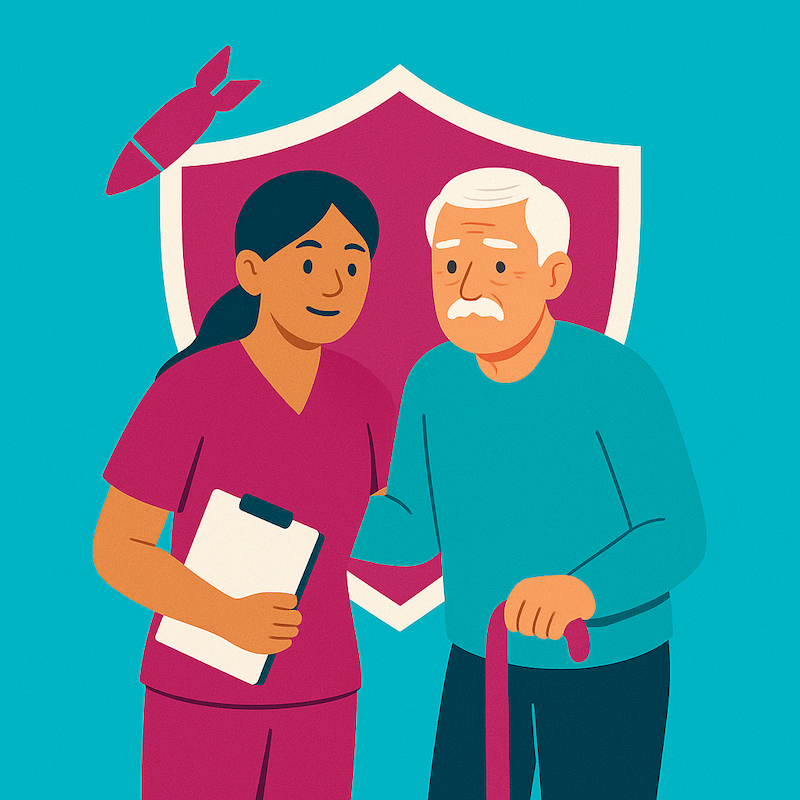3 Care Tips in Elderly Sleep Disturbance
iSavta | 15.06.2020

How do you feel when your client, or even your parent, wakes up every single night and thinks it’s already daytime, starts doing chores, and makes some noise that everybody has to get up and miss sleep as well? Would you still be able to go back to sleep soundly? Would you react and ask him/her to stop what he/she is doing and force them to go back to sleep so they don’t disturb others?
As people age, there is really a tendency to forget things. Many get disoriented with time, or even the year they are in. Sometimes they might think they are still living during the time when you were in school, or when they were working - even if they’ve actually been retired for more than 15 years! It is very challenging for the caregiver - whether the elderly is your client or your parent, it could cause irritation. Nevertheless, there are actually some things we could do that would be beneficial both for the caregiver and the client.
STAY CALM & BE PATIENT
It is easier to get angry than to stay calm, but when we teach ourselves that this technique works better than the former, being patient becomes more and more natural as we apply it. Many times we do things that we actually don’t want because we are angry, then we regret the results. Being patient gives us the opportunity to think ahead of the outcome of our actions, so before starting that argument with your parent/client, stay calm and offer them help, then the ballgame becomes more positive.
MAINTAIN A REGULAR SCHEDULE
In order for the elderly to recall better, putting in place a system such as a regular schedule can be very helpful. Scheduling can help maintain a routine - from the time they would get up in the morning, meal time, activity time, nap time, tea/coffee time, until going back to bedtime, this gives them a sense of coordination. Waking up in the wee hours of the night can then be prevented because their schedules were full during the time that they should be up. Afternoon naps should also be limited to 30 minutes, longer naps naturally give energy and would discourage sleepiness during the night.
INVOLVE THEM IN THE SOLUTION
While offering to help them in whatever they are doing in the wee hours of night, reorienting them and filling the room with familiar objects like family pictures to give them better recall of their surroundings, it is good to start involving them with the solution. After reorienting them, we can probably invite them for some milk, in that way, they know it is a signal to be back to bed anytime, but they are happily doing it themselves.
Managing the elderly is challenging, but with techniques, it could surely help us prevent safety issues like falling, wandering and unsupervised behaviours especially when everyone else is asleep. When we extend our patience, become calm and not being judgemental, we can usher our clients back to the right sense of time and activity orientation. Maintaining a regular schedule would always help prevent sleep disturbance. Making them feel dignified and respected even at this stage of their lives, and involving them as we guide them back to sleep, will not only be efficient but also become less stressful in the end.











